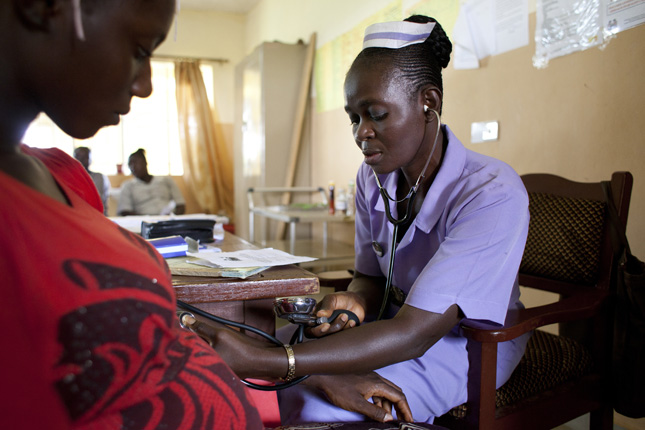-
A Little Respect: Improving Maternity Care
August 21, 2017 By Yuval Cohen
“Disrespect and abuse during facility-based childbirth is a very widespread phenomena with different manifestations,” said Rima Jolivet from the Maternal Health Task Force (MHTF) during a recent webinar hosted by MHTF and Ariadne Labs on the need for respectful maternity care (RMC). Jolivet was joined by Katherine Semrau from Ariadne Labs, Rose Molina from Beth Israel Deaconess Medical Center and Ariadne Labs, Saraswathi Vedam from Birth Place Lab, and David Sando from the Harvard T.H. Chan School of Public Health.
Disrespect and abuse during childbirth can include physical abuse, non-consented care, poor rapport between women and providers, stigma, and discrimination. However, “the absence of disrespect and abuse is not the same as respectful maternity care…it would be possible to refrain from disrespect and abusive treatment and still not be particularly kind and respectful,” said Jolivet.
What exactly does respectful maternity care look like?So what exactly does respectful maternity care look like? In a human rights-based framework, it is defined specifically by the presence of strong communication, respect and dignity, emotional support, and motivated personnel, according to WHO standards for improving quality maternal and newborn care in health facilities. However, “what is perceived as respectful is subjective and may vary across settings,” said Jolivet; therefore we need more women-centered participatory research.
Partners in Health (PIH), in conjunction with Ariadne Labs, is using the World Health Organization (WHO) Safe Childbirth Checklist in Chiapas, Mexico. PIH’s interventions include transporting pregnant women and their companions to and from health facilities, providing them with food and lodging, and creating a “culture of respect and dignity for women who come to deliver at the hospital,” said Molina. Before these services, many of the women in Chiapas felt they had little information on the details of their pregnancy, she said, and coordinators have found that communication helped to bridge this gap.
Many mothers report feeling a lack of autonomy in decision-making during their pregnancy and the birth, according to a study (2017) conducted by Birth Place Lab in British Columbia. The large majority of women (95.1 percent) who participated in the study, said Vedam, felt it was important that they lead the decisions about their pregnancies and child care. Feelings of autonomy and respect were consistently low for women who gave birth in hospitals, and feelings of disrespect and abuse were often higher for Latina/Hispanic women, Black women, and other women of color.
Through increased communication with patients and providers on patients’ rights during pregnancy and childbirth, respectful maternity care is possible. Sando reported positive responses to an initiative piloted in Tanzania called “Open Birth Days,” which focused on improving women’s awareness of their rights and providers’ commitment to ethics in the workplace. We need to “name the problem, start the dialogue, and engage stakeholders” to move towards a solution to disrespectful maternal care, he said.
Read More:
- On over-intervention in maternity care
- How increasing women’s autonomy can help reduce over-intervention in maternity care
Photo Credit: Student midwife from The School of Midwifery in Masuba, Makeni on placement at Makeni Regional Hospital, Bombali District, Sierra Leone, August 2013, courtesy of H6 Partners/Abbie Trayler-Smith
Topics: Dot-Mom, gender, global health, human rights, maternal health, midwives, On the Beat, respectful care
 A Publication of the Stimson Center.
A Publication of the Stimson Center.



